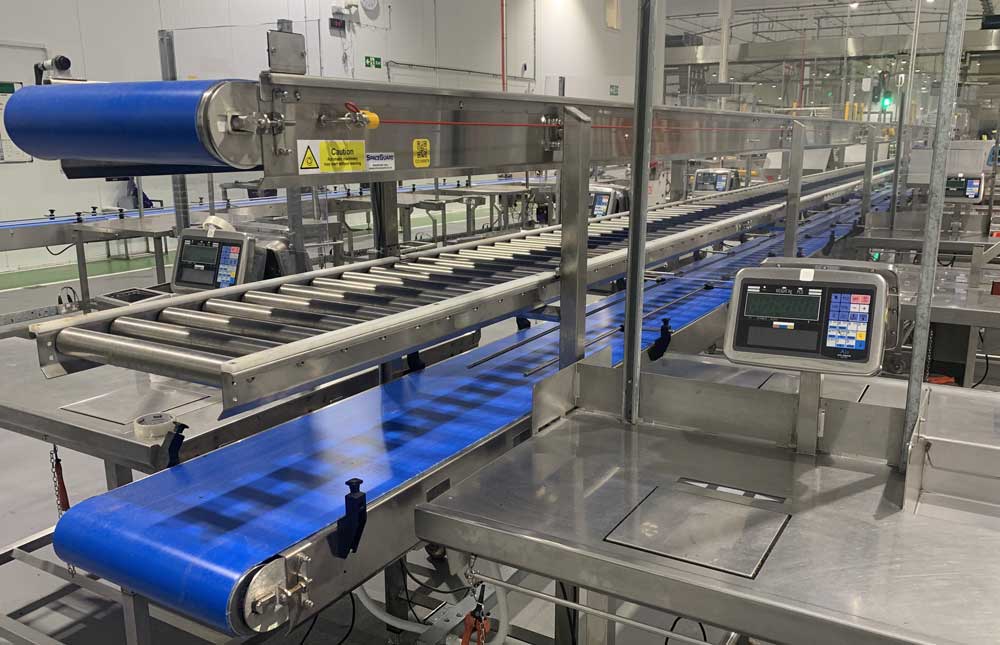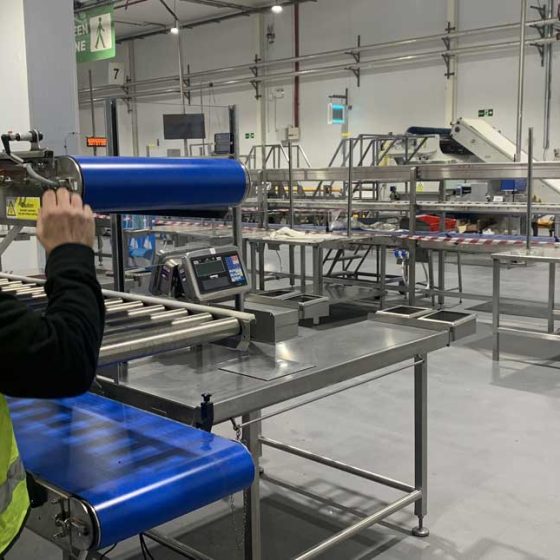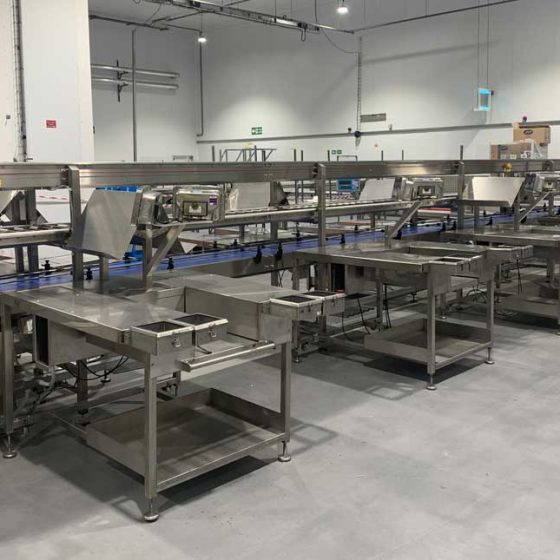
Three Tier Conveyor
About the Company
In this instance the customer is a leading importer of produce for UK supermarkets.
Products Supplied
We supplied a number of tiered conveyor systems consisting of belt conveyors and roller conveyors.
| Lower Tier |
|
| Middle Tier |
|
| Upper Tier |
|
Services
The tiered conveyor system was installed by our team.
Get a FREE Conveyor Quote today
We are the leading UK manufacturer of stand alone conveyors for integration or full conveyor systems
Email sales@conveyorsystems.co.uk with your enquiries
Uses of a Three-Tier Conveyor System
A three-tier conveyor system is an efficient and versatile solution designed to optimize material handling and boost productivity across various industries. Here are the key benefits and applications of implementing a three-tier conveyor system:
1. Maximizing Vertical Space Utilization
Efficient Space Management: By leveraging multiple tiers, three-tier conveyor systems make the most of vertical space, ideal for warehouses with limited floor space but ample height. This configuration allows more products to be transported and stored within the same footprint, significantly enhancing storage capacity.
Layered Operations: Different tiers can be designated for specific stages of the process, such as sorting, packing, and dispatching. This layered approach organizes workflows more efficiently, reducing clutter and streamlining operations.
2. Increased Throughput
Simultaneous Operations: With multiple tiers, these systems enable the concurrent handling of various product lines, increasing throughput and minimizing bottlenecks. Each tier can focus on a distinct function or product type, further streamlining operations.
Continuous Flow: The system ensures a continuous flow of goods, reducing delays and enhancing overall productivity. This constant movement is crucial for maintaining high efficiency in busy warehouse environments.
3. Enhanced Sorting and Distribution
Automated Sorting: Three-tier conveyor systems can integrate with advanced sorting mechanisms to automatically direct products to specific areas based on size, weight, or destination. This automation reduces manual sorting efforts and boosts accuracy.
Efficient Distribution: These systems facilitate the efficient distribution of goods to different parts of the warehouse or directly to shipping areas, improving order fulfillment speed and reliability.
4. Improved Workflow and Organization
Dedicated Zones: Each tier can be assigned a dedicated purpose, such as receiving, processing, or shipping, creating a well-organized workflow. This segmentation reduces confusion and enhances operational efficiency.
Optimized Material Flow: The system ensures an optimized flow of materials from one stage to another, reducing handling times and minimizing errors. This smooth transition between processes is vital for maintaining high productivity levels.
5. Versatility in Applications
Adaptable Design: Three-tier conveyor systems are highly adaptable to various industries, including e-commerce, manufacturing, automotive, food and beverage, and pharmaceuticals. Their design can be customized to handle different types of products and packaging, making them versatile for diverse needs.
Scalability: These systems can be scaled up or down based on the volume of products handled, making them suitable for both small and large operations. This scalability ensures that the system can grow with the business.
6. Improved Safety and Ergonomics
Reduced Manual Handling: By automating the movement of goods, three-tier conveyor systems reduce the need for manual handling, decreasing the risk of workplace injuries and improving overall safety.
Ergonomic Benefits: These systems are designed to minimize bending, lifting, and reaching, promoting better ergonomics and reducing worker fatigue. This ergonomic focus contributes to a healthier and more productive workforce.
Conclusion
Three-tier conveyor systems offer significant advantages in maximizing space, increasing throughput, enhancing sorting and distribution, improving workflow, and ensuring safety. Their versatility and adaptability make them an excellent choice for a wide range of industries, driving efficiency and productivity in material handling processes. Implementing a three-tier conveyor system can transform warehouse operations, making it a strategic investment for modern logistics and manufacturing facilities.
For tailored solutions and expert advice on optimizing your material handling processes, contact our team of specialists today.





